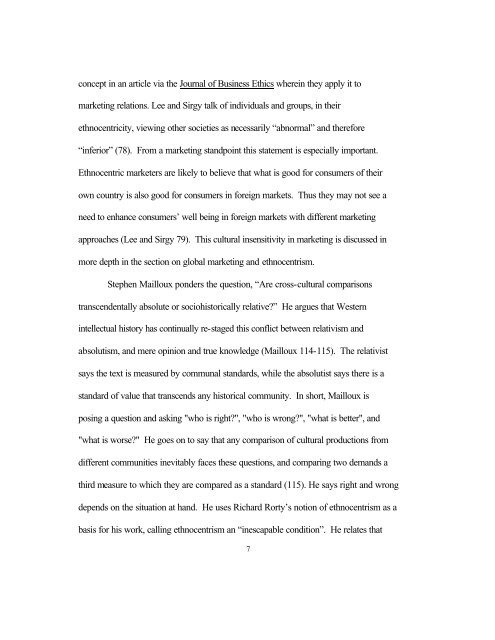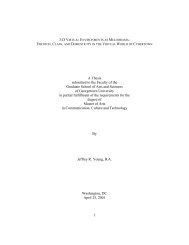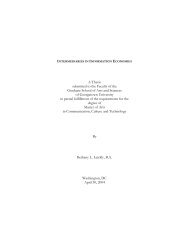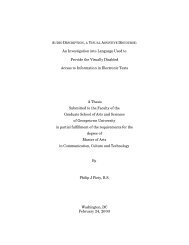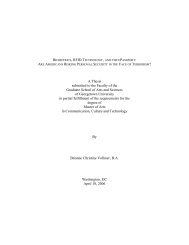A Comparative Case Study of Global Marketing and Ethnocentrism ...
A Comparative Case Study of Global Marketing and Ethnocentrism ...
A Comparative Case Study of Global Marketing and Ethnocentrism ...
You also want an ePaper? Increase the reach of your titles
YUMPU automatically turns print PDFs into web optimized ePapers that Google loves.
concept in an article via the Journal <strong>of</strong> Business Ethics wherein they apply it to<br />
marketing relations. Lee <strong>and</strong> Sirgy talk <strong>of</strong> individuals <strong>and</strong> groups, in their<br />
ethnocentricity, viewing other societies as necessarily “abnormal” <strong>and</strong> therefore<br />
“inferior” (78). From a marketing st<strong>and</strong>point this statement is especially important.<br />
Ethnocentric marketers are likely to believe that what is good for consumers <strong>of</strong> their<br />
own country is also good for consumers in foreign markets. Thus they may not see a<br />
need to enhance consumers’ well being in foreign markets with different marketing<br />
approaches (Lee <strong>and</strong> Sirgy 79). This cultural insensitivity in marketing is discussed in<br />
more depth in the section on global marketing <strong>and</strong> ethnocentrism.<br />
Stephen Mailloux ponders the question, “Are cross-cultural comparisons<br />
transcendentally absolute or sociohistorically relative?” He argues that Western<br />
intellectual history has continually re-staged this conflict between relativism <strong>and</strong><br />
absolutism, <strong>and</strong> mere opinion <strong>and</strong> true knowledge (Mailloux 114-115). The relativist<br />
says the text is measured by communal st<strong>and</strong>ards, while the absolutist says there is a<br />
st<strong>and</strong>ard <strong>of</strong> value that transcends any historical community. In short, Mailloux is<br />
posing a question <strong>and</strong> asking "who is right?", "who is wrong?", "what is better", <strong>and</strong><br />
"what is worse?" He goes on to say that any comparison <strong>of</strong> cultural productions from<br />
different communities inevitably faces these questions, <strong>and</strong> comparing two dem<strong>and</strong>s a<br />
third measure to which they are compared as a st<strong>and</strong>ard (115). He says right <strong>and</strong> wrong<br />
depends on the situation at h<strong>and</strong>. He uses Richard Rorty’s notion <strong>of</strong> ethnocentrism as a<br />
basis for his work, calling ethnocentrism an “inescapable condition”. He relates that<br />
7


